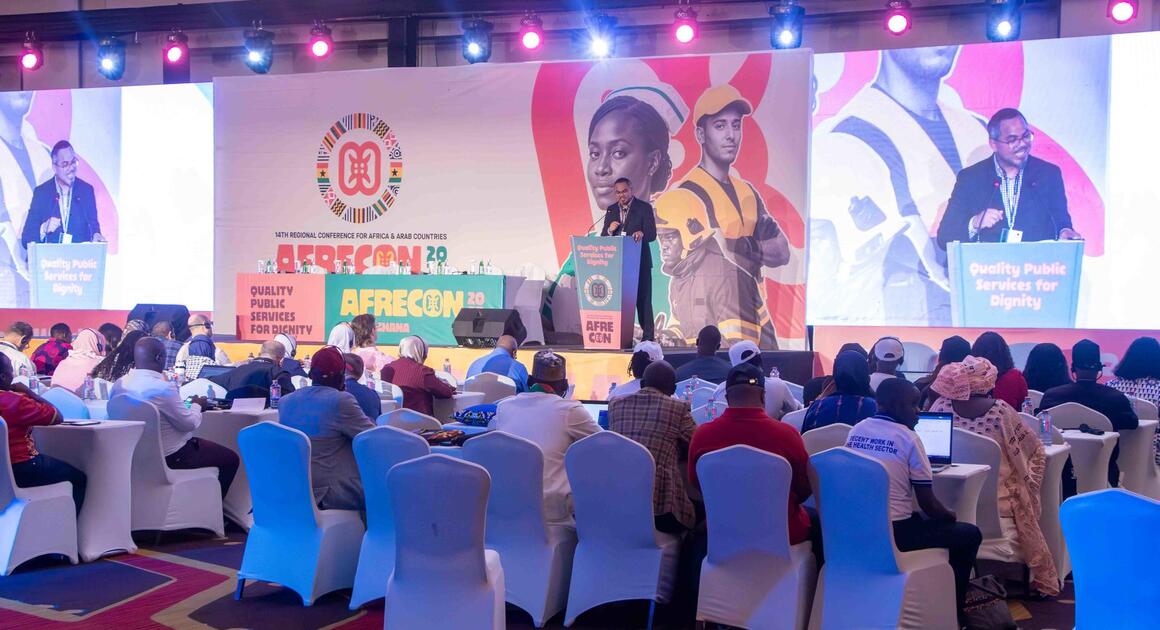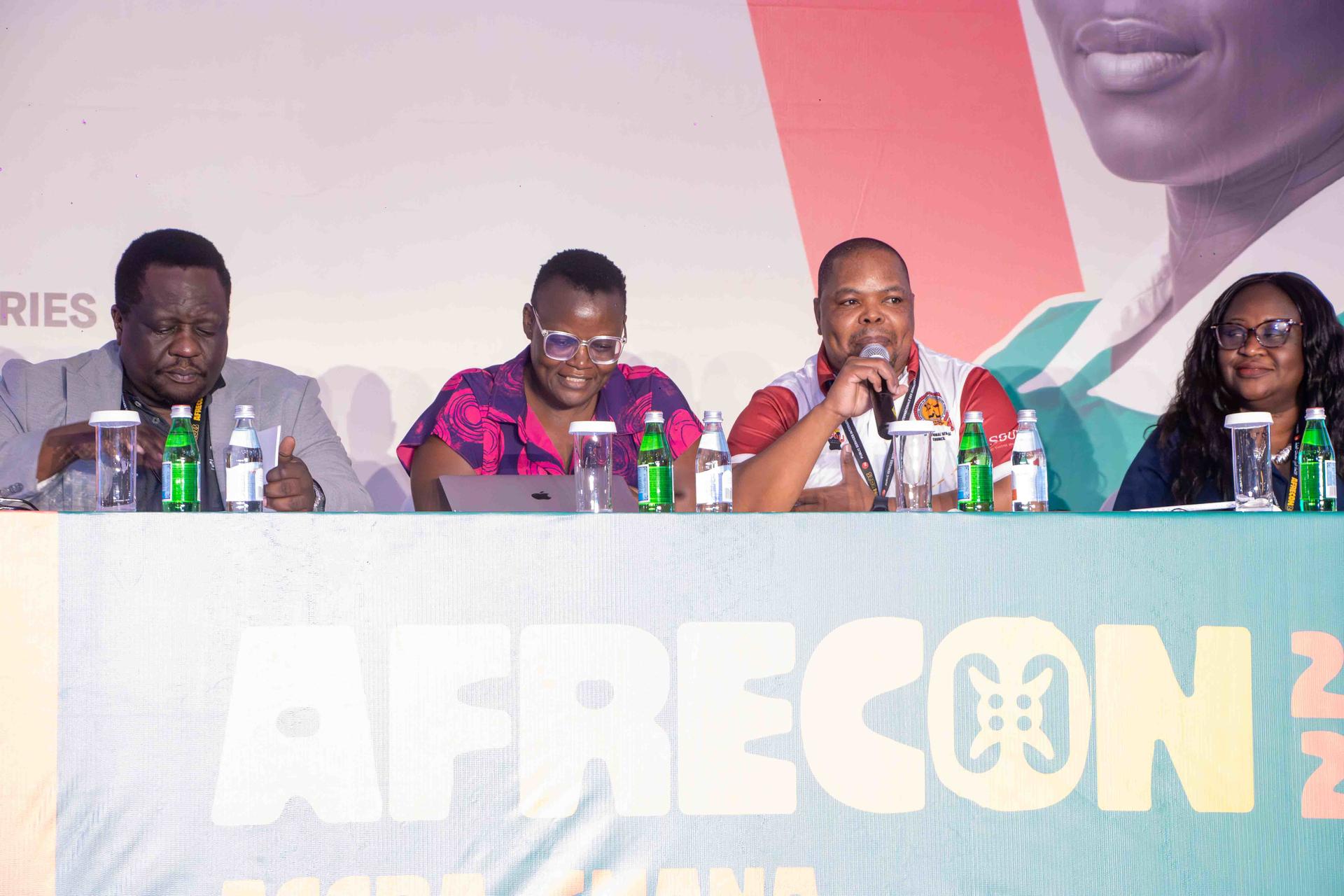Program of Action 2026+: A New Organising Agenda for the Region AFRECON25 - Day 3 Wrap-up

This is in line with the regional organising and growth strategy. He reminded delegates that organising is hard work, which is made even tougher by declining union density and the hostility workers face today. So he echoed that "Organising must be our primary objective, not an afterthought." He closed his statement by highlighting SEIU’s own growth as proof of what is possible and reaffirmed that the challenges workers face are global, and so is the solidarity needed to rise, transform, and thrive.

Panel Session on Regional Growth Strategy
In South Africa, Soly Malema, the General Secretary of NUPSAW shared that unions have spent years organizing community health workers to secure fair pay and better working conditions, winning major gains, including a 2018 resolution that standardized their stipends. Their broader goal has been to bring these workers fully into the public service, and the government’s recent decision to absorb 27,000 of them marks a significant step forward. Still, the fight continues for NUPSAW, which Malema said: “Although progress has been made, our demand continues for all county health workers to receive recognition and integration, regardless of their qualifications”, especially because the success of the new National Health Insurance law depends heavily on their work.
Mercy Nabwire described how the promise of universal healthcare in Kenya contrasts sharply with the growing privatisation that is weakening public services. She recounted the union’s 56-day national strike, strengthened by international solidarity, especially support from SEIU, which pressured the Kenyan government to act. She stressed that defending public healthcare is a political fight that demands strategy, unity across the health sector, and strong alliances. There are the lessons the union is using to build real power and push for lasting change, which Mercy said: "We must forge alliances, build partnerships, and learn from those who have succeeded. By sharing these lessons and working together, we will prevail."
Tumaini Nyamuhokya explained that their union has learned to rely less on strikes and more on constructive negotiation, strengthened by renewed relationships with government officials. He also highlighted the union’s rapid membership growth, which made it clear to the government that workers were united and capable of driving real change. Their persistence paid off with significant wage increases, including a 35% rise this year, and he encouraged other comrades, especially in Uganda to build power through unity and strategic engagement rather than protest alone.
To rebuild their strength, unions are turning to the private sector, where organizing is difficult but necessary, especially with employers resisting union involvement. With PSI’s support, they have begun recruiting in private facilities, securing new collective agreements and winning an important gain: the government’s decision to place health workers in faith-based facilities on the public payroll.
Recommendations from Pre AFRECON Workshops
Energy & Water
Delegates asked for the removal of pro-privatisation clauses in national laws, especially Kenya’s Water Act and the new Privatisation Act to protect water and energy as public goods.
Tax Forum
The forum advanced a progressive national tax reforms, focusing first on countries where political conditions and labour strength give unions the best chance of winning change.
GBV Conference
Delegates called for the restructuring of unions from within by dismantling patriarchal power structures and integrating gender-responsive rules in constitutions, budgets, and decision-making spaces.
See All Photos here on Flickr | Watch Video Highlights on YouTube.
Follow AFRECON online: #afrecon2025 #organisefordignity https://psishort.link/AFRECON25
